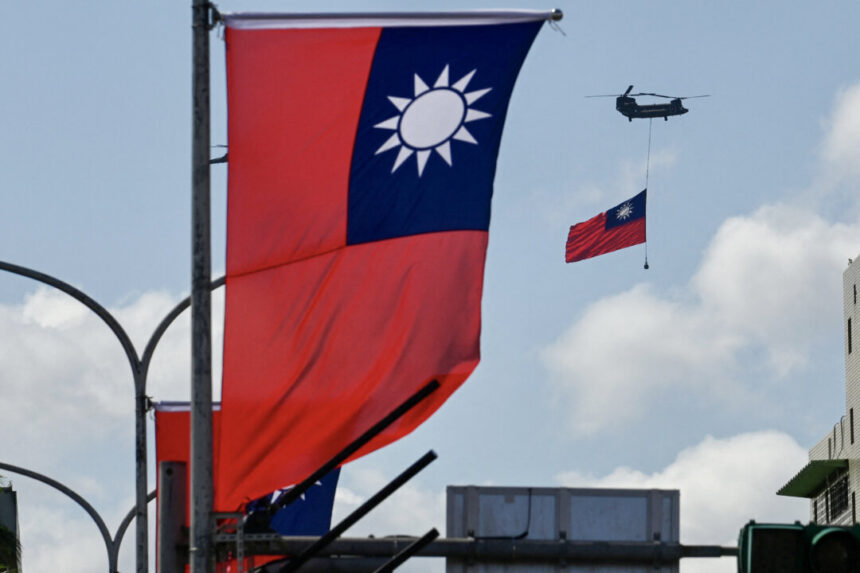The approval of President Joe Biden came at a time when Taiwan was on high alert following missile test firings by the CCP’s Rocket Force and army in inland China.
The United States announced on Sept. 29 a drawdown of up to $567 million in defense support for Taiwan.
In a statement, the White House said the drawdown was authorized by President Biden to provide Taiwan with “defense articles and services of the Department of Defense, and military education and training.”
This announcement followed multiple waves of test missile firings detected in inland China over the weekend.
The White House did not specify the defense articles and services that will be provided to Taiwan, a self-ruling island that Beijing claims as its territory.
Taiwan remained on high alert over the weekend due to the
firings by the Chinese Communist Party’s (CCP) Rocket Force and army in provinces and regions about 1,200 miles away from Taiwan.
The Defense Ministry of Taiwan reported multiple waves of test firings in provinces and regions including Inner Mongolia, Gansu, Qinghai, and Xinjiang starting at approximately 6:50 a.m. local time on Sept. 28.
Taiwan’s forces utilized joint intelligence and reconnaissance measures to monitor developments in the region, maintaining a high level of vigilance and increasing their alert status, according to a statement.
The ministry vowed to enhance Taiwan’s defense capabilities in response to “severe enemy threats” while emphasizing that the island does not seek conflict.
“Any threatening and provocative actions will seriously undermine regional stability,” the statement warned, highlighting the potential impact on global development of threats to the security and prosperity of the Indo-Pacific region.
On Sept. 25, Beijing
test-fired an intercontinental ballistic missile (ICBM) into the Pacific Ocean, marking its first such test since 1980, during the U.N. General Assembly meeting in New York.
China, as one of the U.N. Security Council’s five permanent members, is seeking to expand its influence over key areas, including human rights.
Taiwan’s Foreign Ministry condemned the ICBM launch and
stated that it “jeopardized the peaceful regional status quo,” urging the CCP to exercise restraint and halt activities that disrupt regional stability.
Japan’s Chief Cabinet Secretary Yoshimasa Hayashi
informed reporters on Sept. 25 that the Japanese government had not been notified in advance by China about the launch. Hayashi noted that the missile did not pass over Japan and did not cause harm to Japanese vessels, as reported by local media.
Taiwan has been increasing its military equipment acquisitions amidst repeated incursions by the Chinese military into the island’s airspace. In a recent budget report, Taiwan’s Defense Ministry
announced plans to procure 1,985 Stinger missiles from the U.S., in addition to the 500 missiles already ordered for its navy and army.
On Sept. 26, Taiwan’s military
spotted 43 Chinese aircraft and eight vessels operating around the island, with 34 aircraft crossing the median line into Taiwan’s southwestern and eastern air defense identification zone (ADIZ). Taiwan responded by deploying aircraft, navy vessels, and coastal missile systems to monitor their activities.
A day earlier, Taiwan’s military
detected 23 Chinese military aircraft near the island, with 22 crossing the median line of the Taiwan Strait and entering the southwestern and eastern ADIZ for “distant waters maneuvering.”
Analysts suggest that China’s incursions are part of the CCP’s strategy of
grayzone warfare.
Chris Summers contributed to this report.






